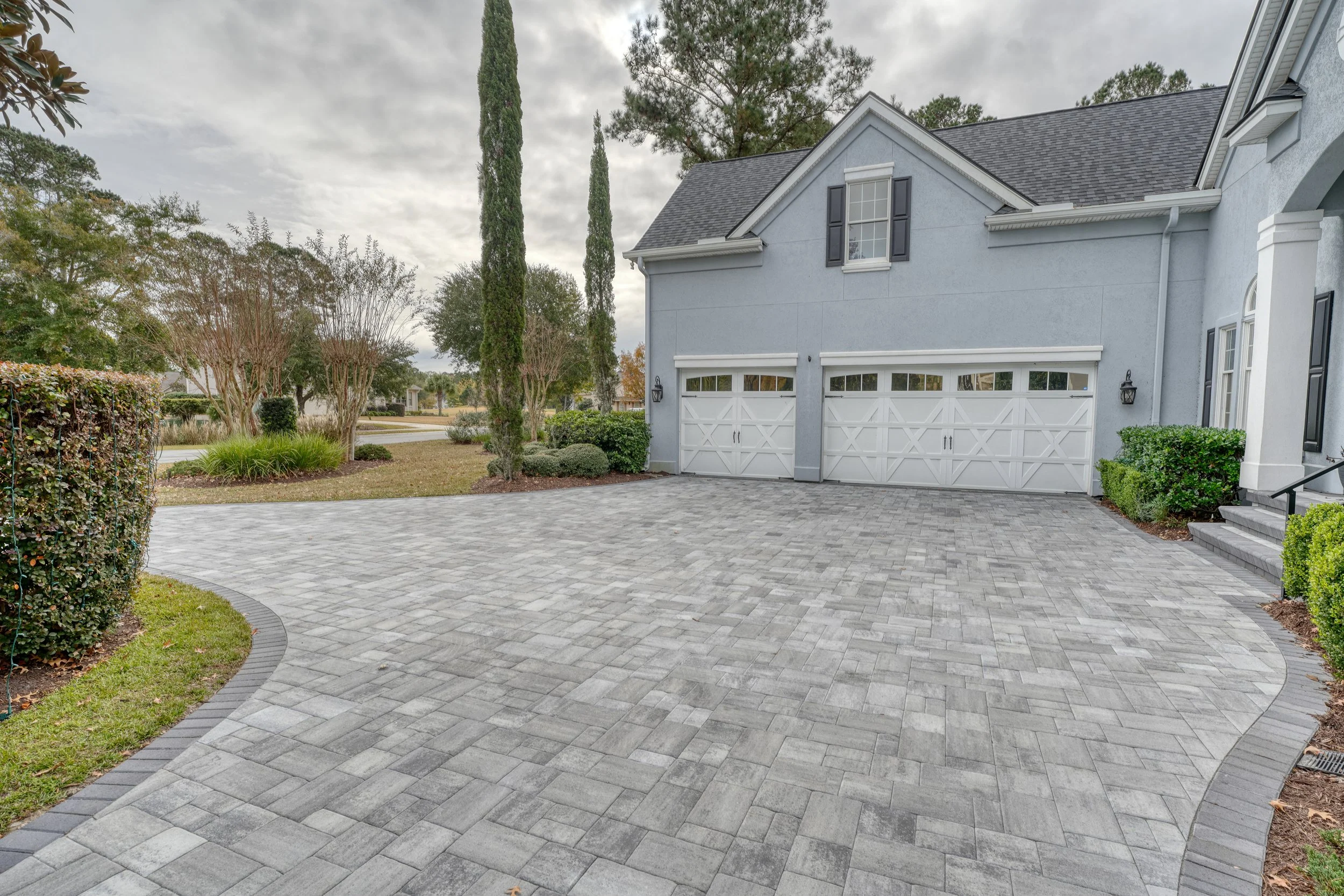When Should You Replace Your Driveway with Pavers? Signs & Benefits Explained
Major Cracks and Surface Damage
Concrete and asphalt driveways are prone to cracking over time due to weather changes, tree roots, and ground shifting. If your driveway has multiple large cracks or potholes, simple repairs may no longer be effective.
Why pavers are better:
Pavers are interlocking, flexible, and easy to repair—individual pavers can be replaced without redoing the entire surface.
Poor Drainage or Pooling Water
Water pooling on your driveway is a red flag. It can lead to erosion, cracks, and even foundation issues over time. Drainage problems often indicate the need for a complete driveway replacement.
Why pavers are better:
Paver driveways are designed for superior drainage. Many styles even allow water to permeate between joints, reducing runoff and standing water.
Uneven or Sinking Sections
Has your driveway developed sunken areas or uneven surfaces? These are signs that the base material has failed. Patching may provide a temporary fix, but it won’t address the underlying issue.
Why pavers are better:
Pavers are installed with a compacted base and sand bedding that can be re-leveled as needed. This makes them more stable over time and easier to maintain.
High Maintenance Costs
Are you constantly sealing, patching, or resurfacing your concrete or asphalt driveway? Over time, these maintenance costs can exceed the price of a full replacement.
Why pavers are better:
Paver driveways require less maintenance and are extremely durable—often lasting 30–50 years with minimal upkeep.
If your driveway looks dated or doesn't complement your home's style, pavers offer an easy way to boost visual appeal. Today’s pavers come in a wide range of colors, shapes, and patterns to match any aesthetic.
Why pavers are better:
They increase property value and improve your home’s overall look—making a big impression on guests and potential buyers.
🔨 Should You Replace or Repair Your Driveway?
Here’s a quick checklist:
Deep or widespread cracking
Pooling water or poor drainage
Uneven or sunken areas
High maintenance needs
Poor curb appeal
If you checked two or more, it's time to consider replacing your driveway—and pavers should be at the top of your list.
When Should You Replace Your Driveway with Pavers? Signs & Benefits Explained
Your driveway is one of the first things people notice about your home. If it’s cracked, stained, or showing its age, it may be time to consider an upgrade—and pavers might just be the perfect solution. But how do you know when it's time to make the switch? Let’s explore the key signs it’s time to replace your driveway and why pavers are a smart long-term investment.
Final Thoughts: Are Pavers Worth It?
Replacing your driveway with pavers is an investment in beauty, functionality, and long-term durability. While the initial cost can be higher than concrete or asphalt, the longevity, low maintenance, and aesthetic value more than make up for it.
Ready to Upgrade Your Driveway?
Thinking about replacing your driveway with pavers? Contact [Your Company Name] today for a free consultation. Our expert team will help you choose the perfect paver design to transform your home's exterior.



